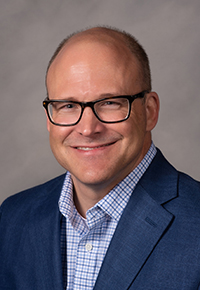Prepare for a Career in Law Enforcement
The criminal justice program of Lakeland Community College are designed to prepare persons to serve the community and its individuals in a variety of criminal justice settings.
As theory and practices form the basis for knowledge, skills, attitudes and values, students are required to observe and participate in class. Graduates are prepared to perform the basic duties and tasks associated with entry-level positions in criminal justice and corrections and/or continue their education with a bachelor or graduate degree.
To be eligible for this program, you'll need to meet the degree requirements, which may include background checks and physical fitness standards. Financial aid is available to qualified students to help cover the cost of your education.
Lakeland's Associate of Applied Science in Criminal Justice degree equips you with the skills and knowledge to launch a fulfilling career in law enforcement, corrections or related fields. This program is designed to prepare criminal justice majors for success in the ever-evolving criminal justice field, whether your goal is to become a law enforcement officer, corrections officer or pursue a law enforcement technology specialization.
Our curriculum covers a wide range of topics, including criminal law, investigative techniques, crime scene processing, corrections procedures and pathways to criminal justice careers. You'll gain hands-on experience through simulated exercises and have the opportunity to explore specialized areas.
Some departments even award bonus points on entry-level and/or promotional exam to students who have successfully completed an associate degree in criminal justice. Therefore, the program provides educational and internship experiences that enable students to succeed at an entry-level criminal justice job or advance in their criminal justice career.
Lakeland's Criminal Justice program also caters to working criminal justice professionals seeking to enhance their skillset and knowledge. We offer flexible learning options and may grant credit for law enforcement-related training you've already completed.
Academies are designed to introduce the pre-service officer to the SKAV's/skills, knowledge, abilities and values required of their chosen career.
In Ohio, corrections and police academies are organized by the state and combine both career SKAV's and academic enhancement. Therefore, Lakeland Community College's criminal justice department grants credit for successfully completing a State of Ohio Corrections Officer or Basic Police Academy.
Lakeland's Holden University Center Partnership Programs make it seamless for Lakeland students to continue their education toward a bachelor's or graduate degree in criminal justice. Explore your options from state colleges and universities right here in Lake County.
- Bowling Green State University - Master of Science in Criminal Justice | Bachelor of Science in Criminal Justice
- Cleveland State University - Bachelor of Arts in Public Safety Management
- Franklin University - Bachelor of Science in Criminal Justice
- Youngstown State University - Bachelor of Science in Applied Science in Criminal Justice
Apply to Lakeland in just a few easy steps!
Contact our program director any time to talk through your options and find out of Lakeland's Criminal Justice program is a good fit for you.
| General Information | |
| Location: | C-1001f (View campus map) |
| Contacts | |

| Gregory Truhan Program Director & Professor |

| Dan Winterich Professor |
Professional and Job Resources
See below for local and national professional and job resources for criminal justice majors.
- State of Ohio Job Search
- Office of the Ohio Public Offender, Investigator
- Ohio Auditor of State Special Investigations
- Ohio Bureau of Criminal Investigation, Special Agent
- Ohio Bureau of Motor Vehicles Investigations
- Ohio Bureau of Workers Compensation, Special Investigations
- Ohio Casino Control Commission, Gaming Agent
- Ohio Civil Rights Commission Civil Rights Investigator
- Ohio Dept. of Taxation Investigations
- Ohio Ethics Commission Investigations
- Ohio Health Care Fraud, Special Agent
- Ohio Investigative Unit
- Ohio Pharmacy Board Investigations
- Ohio State Fire Marshal
- Ohio Department of Natural Resources, Office of Law Enforcement
- Ohio Office of Law Enforcement Recruitment
- Ohio State Highway Patrol
- USA Jobs Portal (search "series 1811" or "investigator")
- Air Force Office of Special Investigations
- U.S. Army Criminal Investigative Division
- Coast Guard Investigative Service
- Naval Criminal Investigative Service
- Bureau of Alcohol, Tobacco, Firearms, and Explosives
- Defense Criminal Investigation Service
- Drug Enforcement Administration
- Federal Air Marshal Service
- Federal Bureau of Investigation
- Immigration and Customs Enforcement
- National Park Service Ranger
- U.S. Marshals Service
- U.S. Capitol Police
- U.S. Customs and Border Protection
- U.S. Fish and Wildlife Service
- U.S. Housing and Urban Development Office of Inspector General
- U.S. Park Police
- U.S. Postal Inspection Service
- U.S. Secret Service (Uniformed Division & Agent positions)
- U.S. State Department, Diplomatic Security Service
Military required training courses may equate to college credit. If you have completed courses through an accredited college, those may be eligible for college credit at Lakeland. Schedule an appointment with the Veterans Program Coordinator before you schedule your first class!
Any branch of the military will receive credit-for-experience for the technical elective CRMJ 2214/Patrol Operations (3 credits). Also, any veteran with 100 hours of active service or more will receive two (2) physical education (PEHR) credits. These two credits are applicable toward the A.A.S.-CRMJ degree program and, with successful completion of PEHR 1650/Health Fitness, will complete three (3) hours of technical elective credit. See Veterans Program Coordinator for detailed assistance with military-based ACE credit.
Alternatively, you may prefer to investigate the credit granted by the American Council on Education for military service. All branches of service are defined. But, remember that the college has the authority to accept or decline any and all transfer credit.
For additional information visit the criminal justice departmental office.
Criminal Justice Curriculum & Transfer
- Current Course Schedule
- Course Descriptions
- Curriculum
- Degrees
- Program Guide
Criminal Justice Outcomes & Performance
Employment of police and detectives is projected to grow 3 percent from 2021 to 2031. The continued need for public safety is expected to lead to new openings for officers, although demand may vary by location.
The median annual wage for police and detectives was $66,020 in 2021 (Occupational Outlook Handbook).
Employment of probation officers and correctional treatment specialists is projected to remain even from 2021-2031 with little turnover.
The median annual wage for probation officers and correctional treatment specialists was $60,250 in 2021 (Occupational Outlook Handbook).
A. Career Path: Career Services (first floor, A-Building, down the hall from the Bookstore) is open to all students and alumni and offers FREE career exploration through the use of CONFIDENTIAL software programs. You may choose to speak with one of your instructors about a certain job or ask an instructor for referral to someone who is doing the job now that you find interesting. Counselors may also be of assistance.
B. Courses to Take First: Non-criminal justice (general education) courses FIRST, especially ENGLISH (ENGL), Communication (COMM), and Computers and Information Processing (ISYS1005). The general knowledge and skills learned in non-CRMJ courses provide a foundation for subsequent courses and should improve your educational experience and grades. Also, since technical courses (like Criminal Justice/CRMJ) rely on CURRENT skills, technology and issues, they can become outdated in even one semester. So, by "saving" the criminal justice courses for last, you'll be more current when you apply for job openings.
C. Criminal Justice Courses to Take First: CRMJ1110/Introduction to Criminal Justice is the first course for all criminal justice students, even those employed in the criminal justice field. CRMJ1110 is the foundation and prerequisite course for all other CRMJ courses. If you do not complete CRMJ1110 first, you could have difficulty with other CRMJ courses.
D. Scheduling: Only 4 courses are offered in both fall and spring semesters: CRMJ1110/Introduction to Criminal Justice; CRMJ2231/Juvenile Delinquency; CRMJ2244/Criminology and CRMJ2260/Interview & Interrogation. All other courses are only offered once per year. So, we recommend you schedule an appointment with Counselors and plan your degree accordingly.
E. Transfer to 4-Year College: It is better to take NON-technical, NON-criminal justice-related courses. For specific information about the college of your choice, however, you should make an appointment with Counselors.
Lakeland has articulations agreements and partnerships with both Cleveland State University and Youngstown State University. Many of your courses can even be completed here on Lakeland's Campus, at Lakeland's Holden University Center or on-line. You may also wish to consider the University of Cincinnati's Bachelor of Science Degree in addiction studies.
Lakeland's Criminal Justice program has articulation agreements with the following institutions:
Bowling Green University
Cleveland State University
Eastern Kentucky University
Kent State University
University of Cincinnati
Youngstown State University
Lake Erie College
South Euclid High School
Shaw High School
Stephen J. Roberts
United States Probation Officer (retired)
Criminal Justice Instructor at Auburn Career Center
Nicholas Selvaggio
Law and Public Safety Instructor
Euclid High School CTE Criminal Justice
Kimberly Brown
Counselor
Lakeland Community College
Michael Burgett
Parole Services Supervisor
Ohio Adult Parole Authority
Ann Clayton
Counselor
Lakeland Community College
Honorable Marisa L. Cornachio
Judge
Willoughby Municipal Court
Nora Gee
Counselor
Lakeland Community College
Anthony Goff
Chief Probation Officer
Lake County Juvenile Court
Kenneth K. Gunsch,
Chief
Mentor Police
Scott Hildenbrand
Sheriff
Geauga County Sheriff's Department
William "Billy" Johnson
Sheriff
Ashtabula Sheriff's Dept.
Honorable Karen Lawson
Judge of Lake County Juvenile Court
Lake County Courthouse
Frank Leonbruno
Sheriff
Lake County Sheriff's Office
Honorable Eugene Lucci
Judge, Lake County Common Pleas Court
Brian McAllister
Chief
Kirtland Police Department
Terry Moisio
Chief Deputy
Ashtabula County Sheriff's Office
Matthew Naegele
Chief
Willoughby Hills Police Department
Scott Niehus
Chief
Chardon Police Department
Lt. Kathy Rose
Jail Administrator
Geauga County Detention Facility
James Schultz
Chief
Willoughby Police Department
Kenneth Sharkey
Associate Professor/Counselor
Lakeland Community College
LeAnne M. Suchanek
Manager/Administrator
Lake County Crime Lab
Alan D. Thorne
Adjunct Instructor
Lakeland Community College
Gregory Truhan
Program Director & Professor
Lakeland Community College
Daniel Winterich
Assistant Professor
Lakeland Community College
John Zinnicker
Detention Director
Lake County Court of Common Pleas, Juvenile Division


